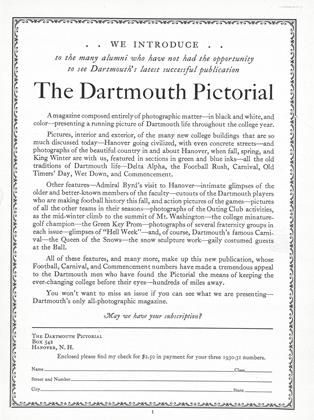Another attribute of life with which education in the liberal college must concern itself is what constitutes culture. Today I wish simply to raise question in regard to the validities of certain conceptions of culture not infrequent in academic communities. Criteria of these may be found in the standards of aesthetic appreciation. We live in an age when the social transformations incident to the mechanization of industry, mass production, complicated processes of distribution, and metamorphosed principles of financial control are in their infancy, as the world counts age. Perhaps the most conspicuous phase of the whole matter, from the point of view of its social implications, is the virtual disappearance of the rural community and the inevitable consequence of the weakening authority, with all of its merits and defects, of the rural mind in defining the world's ideals and in directing the world's affairs. This transformation comes about on the one hand through the actual transfer of populations from country to city residence but it comes about even more completely from the developments of transportation and intercommunication and the propaganda effectiveness of the radio and the moving picture, which make all the world so susceptible to the ideas of the great centers of population. Provincialism still lingers in its objectionable forms of antagonisms among the nations, prejudices between racial stocks, and smug self-satisfactions among various peoples, but in social custom and in folklore, as well as in art and science, it wanes. Great argument is waged as to the final effect of all this but the actuality is clear of the inevitable continuance and acceleration of the movement.
 View Full Issue
View Full Issue
More From This Issue
-
 Article
ArticleThe Class of 1934
November 1930 By Charles R. Lingley -
 Class Notes
Class NotesCLASS OF 1930
November 1930 By Albert I. Dickerson -
 Lettter from the Editor
Lettter from the EditorEditorial Comment
November 1930 -
 Class Notes
Class NotesCLASS OF 1913
November 1930 By Warde Wilkins -
 Class Notes
Class NotesCLASS OF 1920
November 1930 By Allan M. Cate -
 Article
ArticleA Course in the Department of Biography
November 1930 By Harold E. B. Speight
President Hopkins
-
 Article
ArticleBELIEF
AUGUST, 1927 By President Hopkins -
 Article
ArticleThe Undergraduate and His College
November 1928 By President Hopkins -
 Article
ArticleTRUE PORTRAITS RARE
November, 1930 By President Hopkins -
 Article
ArticleAN ACADEMIC HUNDRED THOUSAND
November, 1930 By President Hopkins -
 Article
ArticleMIND VERSUS BRAIN
November, 1930 By President Hopkins -
 Article
ArticleLIVING AS AN ART
November, 1930 By President Hopkins







